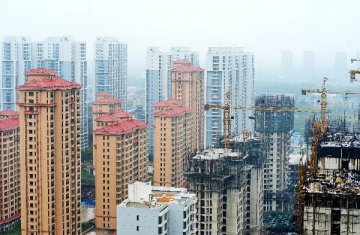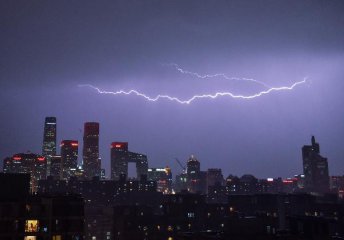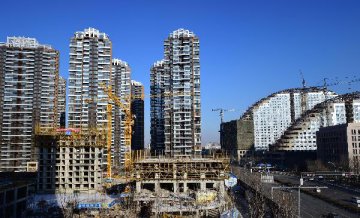
It is not exaggerating at all that it is the period with the most ever strictest regulation in housing market right now.
Recently, there are rumors about various restriction policies on house purchase every day.
People cannot transfer their houses until 2 or 3 years after obtaining property ownership certificates. No policy is stricter than this one in the history of China’s real estate market. At present, 14 cities including Chengdu, Xiamen, Fuzhou, Guangzhou and Zhuhai have launched policy on restricting transferring houses.
14 cities launch policy on restricting transferring houses
Chengdu city released new housing regulation policy on April 14, requiring that people who buy new houses in certain regions of the city are not allowed to transfer the new houses until 3 years after they get property ownership certificates.
There have been 14 cities releasing policies of selling houses since March so as to crack down speculators, according to statistics by a journalist from Securities Times.
Regarding relevant policies, the journalist found that in Hangzhou, only enterprises are restricted to sell houses; while non-local residents (households) are restricted in cities such as Baigou New Town of Baoding city, Hebei province and Qidong of Nantong city, Jiangsu province. All housing transaction objects in cities including Changzhou, Yangzhou, Xiamen, Changle, Qingdao, Guangzhou, Zhuhai, Huizhou and Dongguan are restricted, but Fuzhou and Chengdu introduce restrictions over the regions where the houses are located. Home buyers in Baigou New Town of Baoding city are not allowed to transfer the new houses in 5 years, which is the longest time required in the policies of these cities.
“The restriction over transferring houses” reflects the rapid development of real estate market due to the current investment demand and the consequent imbalance between supply and demand.
In the opinion of Zhang Dawei, chief analyst from Centaline Property, restricting house selling is the new idea of real estate regulation at the moment and the new characteristic of real estate regulation in many cities of China since March. It is predicted that more cities will carry out this new measure. What implement the policy of restricting house selling are some hot cities, which can effectively crack down speculation. Real estate regulation is always being implemented, but there are many innovative words and measures this year and many policies have overturned the game rules of the past.
3 new characteristics of real estate regulation
More than 45 cities in China have launched various housing regulations since September 30, 2016.
Zhang thought that there are the following three major characteristics of current housing regulation.
Firstly, house purchase is fully restricted in areas around big cities, like Beijing and Xiongan New Area. In the past, tier-1 and tier-2 cities are the major ones with policies of restricting house purchase, but now many tier-3 and tier-4 cities follow them. Housing prices in Beijing-Tianjin-Hebei region, Yangtze River Delta, Pearl River Delta and the surrounding areas surged by above 100 percent in more than one year due to the low absolute value of prices and various favorable factors. So these places began to limit home purchases.
Secondly, it is the first time in the history that cities introduce policies with restrictions about the years that they buyers hold the houses. More than 10 cities such as Xiamen, Fuzhou, Guangzhou and Zhuhai all unveil policies requiring that new house buyers can be only allowed to transfer the houses after possessing the house for certain years. These policies will severely crack down speculation.
Thirdly, the previous credit policy based on the loans and the number of houses of the buyers is basically readopted in tier-1 and tier-2 cities. It is expected that this round of regulation on housing price will see upgrading and it will be adjusted once it rises. Different from previous years, the regulation of this year in cities represented by Beijing has set new record. It can be said that several rounds of regulation policies have prevent any potential speculation in all aspects. In terms of market development in the future, more cities may implement regulation policy.
How will housing prices move?
How will the housing prices move after the new round of regulation?
Economist Guo Shiying believed that if cities are forced to restrict house purchase, imposing restrictions over house selling moves far away from marketization. It lowers liquidity of houses while withdrawing currency liquidity, which seems like freezing the real estate market. Loss in the real estate market will be faster and larger if it keeps going on.
Guo stated that more efforts are made to stop the housing prices this time. The continuous credit crunch is expected to make the market feel cool. Although the market will take time to cool down, many people who speculate in real estate market are trapped in it and cannot sell the houses due to higher prices.
Chinese economist Ma Guangruan viewed that thinking about housing prices should consider the following three aspects.
The first one is about policy. Chinese real estate market cycle is affected by policy cycle, so is the housing price. Housing price will rebound along with the policy. The policy takes effect every time if it is truly tightened.
The second aspect is supply and demand. The law of supply and demand is the most basic logic deciding the long-term trend of China’s real estate market. With nearly 20 years of development, supply and demand of housing market is basically balanced. But due to the resources gap between big cities and other cities, there is inevitably a contradiction that medium and small cities face excessive supply while big cities suffer insufficient supply for a long time. Instead of inventory, the mismatch of resources is not the biggest problem of China’s real estate market. Land system and city development direction go against the basic law of urbanization, which result in shortage made by human.
The third aspect is price. It is an indisputable fact that the absolute value of housing prices has been very high. Average housing price in Beijing is over 60,000 yuan now. If considering a series of indicators such as per capita income, median of housing prices, housing-price-to-income ratio and price-to-rent ratio, the absolute value of housing prices is very high and the bubbling is also very serious based on many indicators.
When the goal of real estate policy changes from curbing rapid growth of housing prices to preventing risk of real estate bubble, the market is inevitably to slow down in a short term. Influenced by the policies of restricting house purchase and loans, housing prices in some hot cities are very likely to see adjustment.
Translated by Vanessa Chen























Latest comments